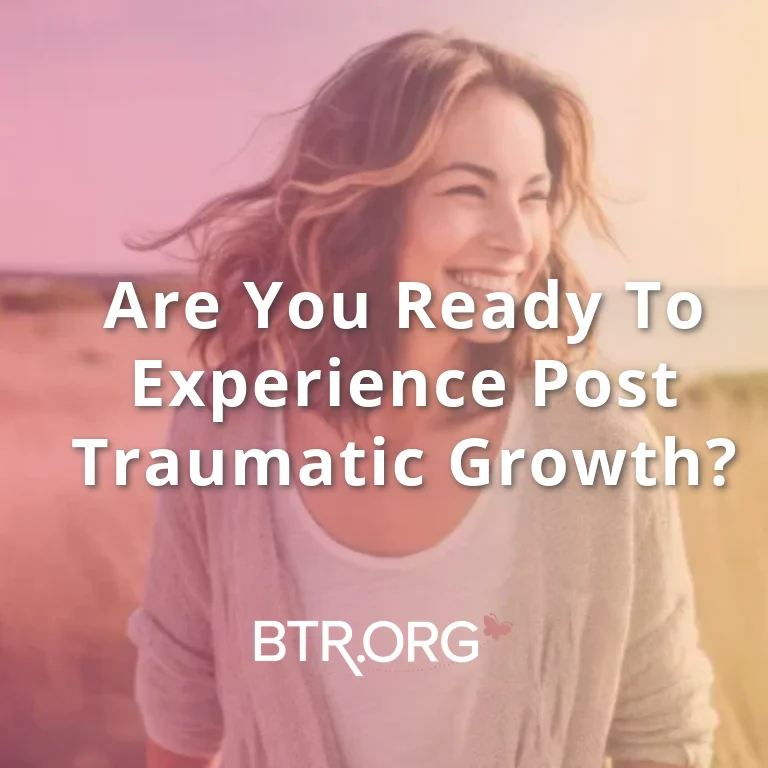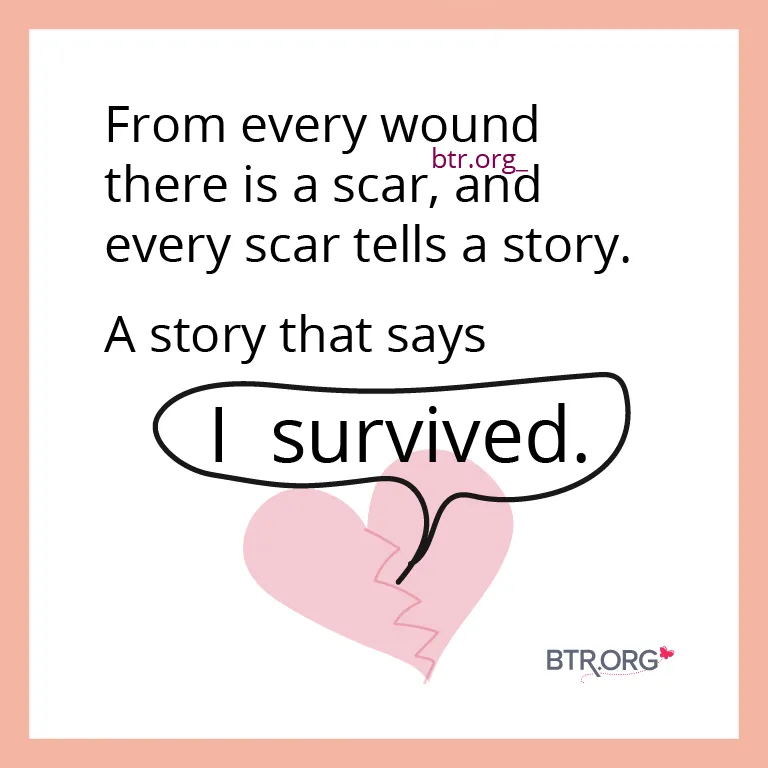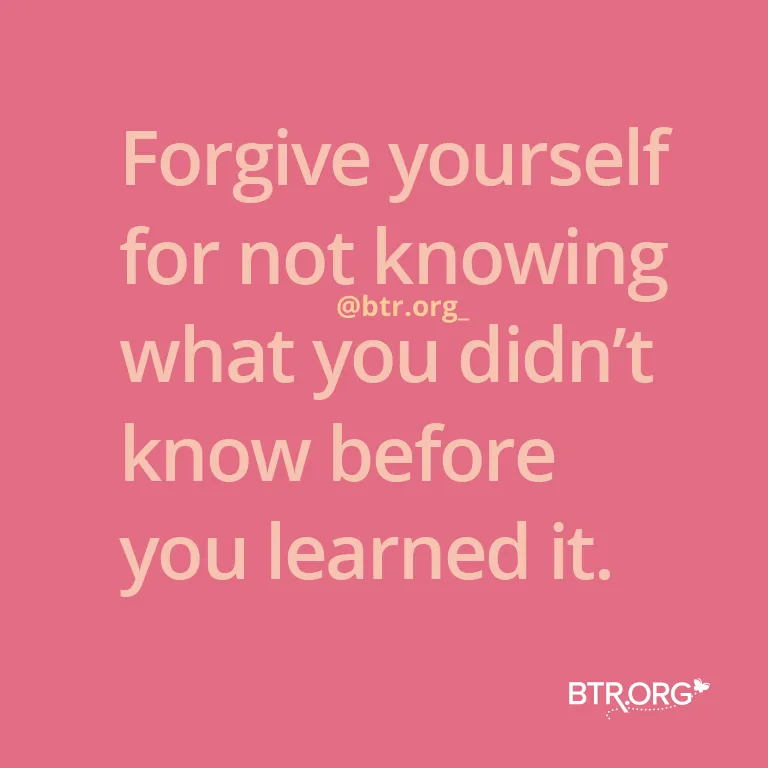Post traumatic growth may feel like a dream that’s out of reach. If you’ve been a victim of betrayal trauma and emotional and psychological abuse. But the research says you CAN heal! Here’s what you need to know.
Before you consider post traumatic growth. You need to know if you’re completely protected from emotional abuse. Did you know there are 19 types of emotional abuse?
Take our Free Emotional Abuse Quiz to see if you’re still experiencing his emotional abuse.
3 Steps Toward Post Traumatic Growth
If you’re wondering how to begin your journey toward post-traumatic growth, you might consider taking these initial steps:
- Identify the source of the trauma – what forms of abuse are you experiencing?
- Seek support, perhaps attend a Betrayal Trauma Recovery Group Session.
- Learn how to protect yourself using emotional safety strategies. Enroll in The Betrayal Trauma Recovery Living Free Workshop to learn more.

Transcript: Are You Ready To Experience Post Traumatic Growth?
Anne: Simona is a doctoral student at Auburn University. Welcome Simona.
Simona: Well, thank you, Anne. thanks for having me on your podcast. I am so excited to be with you.
Anne: I participated in your study, as well as many women in our Betrayal Trauma Recovery community. So let’s start with your study.
Simona: Yeah, by the way, I loved having you on my study as a participant. I realized there’s a gap in literature surrounding post traumatic growth. Which is the growth that people experience after a whole lot of suffering and trauma. And I got interested in this subject because we don’t have a lot of studies to offer hope. Because honestly, this kind of experience doesn’t make sense if we don’t have a community. So I started thinking about this.
Anne: Does your study touch on what causes the betrayal trauma symptoms, or just post traumatic growth?
Simona: No.
Anne: I wonder if the participants identify the cause of the trauma as ongoing abuse. What are they identifying as the cause of the trauma?

Simona: I think they might have known about their spouse’s addiction, but they didn’t know the extent of it.
Anne: So they don’t identify the emotional and psychological abuse that they’ve been experiencing?
Simona: Some people don’t, because they can’t define that. They don’t know that’s abuse. They need a person in their life that can say to them, this is actually abuse. This is domestic violence. and chronic stress. This is verbal abuse, manipulation, or psychological abuse. So I think many partners do not even recognize that or define it.
Challenges In Identifying Abuse
Simona: Sometimes their communities do not support them to identify that. As, hey, this is a threat to my identity, my physical integrity, emotional well-being, and my children’s well-being. We are not trained, a lot of us, to recognize this is an actual threat.
Anne: Why do you think in general, the therapeutic community doesn’t recognize that the trauma women experience is from abuse? Or how to know if their husband is abusive? Why do you think they focus on maybe the disclosure or discovering it?
Which is part of the abuse, it’s psychological abuse, the deception and manipulation. Because had they not been psychologically abused. They would have known that their husband had an affair or watched explicit material. Why do you think they don’t clearly identify it due to emotional and psychological abuse and coercion?
Simona: I think it takes a lot of time for a person who has lived in that kind of manipulation and control to escape that chaos, haze, and fog. So I would say for me I’m missing pieces. We do not ask the right questions to assess correctly what’s going on, heal, and experience post traumatic growth.

Anne: For example, if they come in and say hey, my husband is psychologically and emotionally abusing me. Then the therapist would be like, okay. But you’re saying just in general, and I know you don’t speak for all therapists. But perhaps if a person can’t identify they’re being abused. Then their therapist won’t educate them and help them identify it necessarily? They’re just going to meet them where they are?
Betrtayal Trauma Recovery’s Approach To Abuse
Anne: I think that’s why, at Betrayal Trauma Recovery, I feel comfortable saying it’s abuse. So anyone who says my husband uses explicit material will be like, oh, you’re dealing with abuse then, right out of the gate. At least for Betrayal Trauma Recovery and the women that come here, that works. We can determine where he is on this spectrum of abuse. Is he lying to you? Has he been gaslighting you?
The main thing on their radar is emotional and psychological abuse and coercion, rather than is he in recovery.
Simona: Right, which I appreciate. I’ve learned over the years it’s better to ask the right questions at the beginning, what’s going on there.
Anne: If explicit material is part of the equation, it’s an abuse issue. And so there’s no reason to have a couples therapist or therapist who’s seeing both people. Because this is an abuse issue, and it’s counter indicated. The explicit material is the indicator that you’re working with an abuser. This is how infidelity is harmful. So let’s talk about your study of post traumatic growth.

Post Traumatic Growth Explained
Simona: Post traumatic growth is the growth that happens out of that suffering. It’s really our attempt as human beings to reveal and integrate our interpretation of that trauma. In hopes to find a sense of purpose and coherence for our lives.
Anne: In talking with women experiencing the emotional and psychological abuse associated with someone who is a addict. How do we deal with growth, since the trauma is not post? Like, it’s ongoing.
Simona: You know, that’s a good question. From anecdotal research, yes, I think there are many partners that still live in that traumatic stress, as the threat is not over. And at that point, what I find is that yes, maybe the partners grow. And make sense of some part of their trauma, they grow in some direction.
Anne: Rather than post traumatic growth, would we call it maybe like, during traumatic growth or something? What’s a word? Yeah. We should invent it right now.
Simona: We should invent it right now.
Anne: Current, current traumatic growth.
Simona: I think they grow in identity, as they’re forced to change careers, go back to school. Or to figure things out that they never had to figure out before. And so I think they grow in those areas. But yeah, I would say they’re still in chronic stress. They’re still in a situation where their ability to cope and adapt to life is very hard. Because of these circumstances they have no control over. So they’re in constant threat.
Anne: The trauma they’re experiencing, because it’s due to emotional and psychological abuse. Isn’t going to stop until they’re separated or far enough away from that harm.
Impact Of Divorce On Trauma
Anne: Were all of them divorced?
Simona: They’re all divorced, yes. And most of them divorced for at least two years. And even separated for longer than that, three or four years. Because that time between the traumatic event and the process of divorce does make a difference. It’s a variable, right? Time is a variable in our growth and making sense of this trauma.

Anne: So when you say the time between the traumatic event and the divorce. You’re not counting all of the traumatic events, like all the lies and emotional and psychological abuse in your study?
Simona: No, I am not studying that.
Anne: So the only thing you’re studying is the time after they discovered their husband was using explicit material.
Simona: Right, yeah, and I think that would be an incredible variable to study. I just have not done that. And I haven’t even configured a question to consider it. And I think that would be an amazing study to see how they grow through this constant stress and constant chronic lying. Especially if you have children and are in custody negotiations or divorce. How did they grow through it? And what kind of support do they need to make sense of it?
Anne: As you interviewed your participants. Just in general, I know that we’re not getting into specifics right now. How many of them continue to experience emotional and psychological abuse after their divorce?
Simona: I would say about half of them, because they have young children.
Anne: So some of the participants, did not share children?
Simona: Some of the participants did not have any or they have full custody.
Experiences Of Emotional & Psychological Abuse Post-Divorce
Anne: Okay, so the ones with full custody, did you find they had less abuse incidents?
Simona: Yes, mm hmm. Because many of them in my study were able to figure out how to separate from that person. And keep them out of their lives as much as possible.
Anne: So in that sense, it was post traumatic stress, the trauma had stopped. Yeah, I mean, here at Betrayal Trauma Recovery, we confirm over and over again that safety is the treatment. I mean, these women don’t need therapy. They just need to get away from abuse. So that’s why I developed The Betrayal Trauma Living Free Workshop. Which first helps them identify their husband’s true character.

Like what exactly is going on. And then gives them safety strategies to actually protect themselves from the harm. And that is the treatment. If they’re not being abused, they do great. So what are some things that surprised you about what women learned and gained? And when I say gained, I mean, obviously nobody wants to be abused. But what surprised you about what women gained through their post traumatic growth?
Simona: There were about 10 themes that came up consistently, with every one of my participants. They have to tell their stories. They go back and forth between telling me the story of abuse in the marriage and their post tramatic growth. And how they’ve come to this place.
Themes From The Study About Post Traumatic Growth
Simona: What surprised me was honestly, Anne, every one of my participants talked extensively about how they had a gut feeling. And they knew that this person was not healthy enough to be a husband, father and partner. And they were not connected somatically to their bodies.
Anne: My guess is they were always trying to resist the abuse. They talked to their husband about it, but they were manipulated out of it. I mean, their husband was like, no, you’re crazy. Of course, that’s not happening. Or you know, a therapist may have said. Let’s improve your communication. Or they went to clergy, and the clergy said, “Are you a good wife? Have faith and pray. So, I think it was more external factors. I mean, they all discounted her feelings.
It’s likely that she actually expressed them to people, and they were discounting her all the time. And being a reasonable, normal, healthy person, she’s taking into account their perspectives. And she’s thinking, maybe they are right. Instead of thinking, I need to go with my gut feeling, and all these other people don’t know what they’re talking about. I mean, that’s a really difficult thing for a reasonable woman to do.
Because if all these other people say he’s fine and that things are good. Then I might be crazy to think that my opinion matters more than these 10 other people’s opinions. I mean, it only proves how reasonable women are, I think.
Connecting With Gut Feelings
Anne: When you said somatically, for our listeners who might not know what that means. Can you define that?
Simona: Yeah, somatic means being in your body with your senses, being connected to yourself to be in tune with your sense of safety, your sense of value, your sense of integrity in your body. I am in my present tense in this place at this moment with this person. And this feels healthy, peaceful, chaotic, or just feels something, but I can’t define what it is. It just doesn’t feel quite right.
Anne: In addition, women maybe not being trained or given permission. I also think there are so many societal, institutional or religious things where people say to women, no, no, no, it’s not that. He’s a great guy and doing well. They’ll go for help to anyone. It could be family, friends or clergy. It could be anybody.
And the person they go to for help is like, oh, you know, that happened to me once, and I was just forgiving and it all worked out. Instead of digging in and helping women trust their gut. It’s amazing how many times women go for help, and then they’re talked out of it.
Simona: I would agree with you, yes.
Anne: So that was one of the main themes, which was that women have these somatic experiences, where they have a gut feeling where something isn’t right. But for whatever reason, they’re not able to identify it. They’re talked out of it. Can you talk about the other main themes you found?
Spiritual Bypassing & Abuse
Simona: Yeah, another one that surprised me was they started being awakened to spiritual bypassing in their families and communities. Which is the idea of, we use a sense of religiosity, which is performance and rules, to bypass how we feel. To bypass healthy boundaries, to bypass talking about what is toxic.
And they are awakened to this spiritual bypassing in their communities. While they realize that their higher power, and for many of my participants, it’s God. Their higher power is a person, and they want to go deeper into this authentic relationship with their higher power. Spiritual bypassing is using our religiosity, our religious beliefs, and religious rules. I would call it legalism, to bypass how we feel, to bypass the abuse, to rationalize it and minimize it.
In some communities, a sign of spiritual bypassing being super spiritual, but not looking at the reality of somebody’s lack of boundaries.
Anne: Or there’s some, I’m going to use the word magical, a magical way to not have to process the injuries. That you have incurred from the abuse. And also some kind of magical way. Also praying for their husband to change. That this abusive person can literally change their character from the inside out in a sudden way. I am religious, and I don’t want to say that’s impossible, because I believe with God, all things are possible. But I also believe God has provided us with a way to change in the work, not without it.
Simona: Yes, the Bible. There’s nothing in there where somebody uses their spirituality, their relationship to God, to avoid unresolved issues. Jesus did not preach that. He was good in boundaries. He allowed Judas to hang himself because of his own dysfunction.
Give Yourself Some Space For Post Traumatic Growth
Anne: And I also think it’s a direct result of spiritual abuse, the abuser using these spiritual principles to blame the victim. And because they’re weaponizing spiritual principles, it gets confusing about what I believe Jesus actually intended. Which over and over again, he says, separate from wickedness. Give yourself some space. The abuser would like you to stay very close, so he can continue to exploit you.
Simona: And don’t express your anger.
Anne: Right, because it’s hard to exploit someone when they’re angry. You know they’re not going to do what you want if they’re mad at you, exactly. Well, Simona, thank you so much for sharing your thoughts about your study on post traumatic growth today.
Simona: Thank you so much.




1 Comment